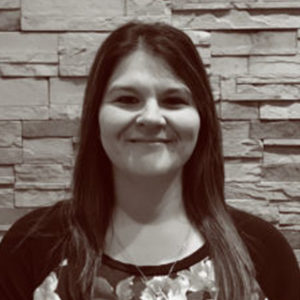I think every parent has asked (and probably more than once) “Why didn’t somebody tell me how to do this?” Whether it’s toilet-training, negotiating truces between siblings, convincing a picky eater that vegetables won’t kill him, or enforcing bedtime, parenting forces all of us to draw upon skills we didn’t know we had, or even create them from thin air.
It’s a tough job in the best of times. Add in our nation’s state of unrest and it can feel overwhelmingly draining and sometimes nearly impossible. At the same time that you’re trying to understand, learn, and make changes needed, you’re doing your best to cope with your own concerns and outright fears, you’re expected to be the perfect leader with all the answers for the smaller members of your household.
First, if your goal is perfection, please stop. Nobody is a perfect parent, even under the best of circumstances. We all do the best we can, so when something doesn’t go quite as we’d hoped, there’s no reason to treat ourselves as failures. Raising kids is one of the toughest jobs we’ll ever have and it changes every single day. So have some patience with yourself.
You know all the stress you’re feeling? The kids are feeling it, too. They probably see the effect it’s having on you, and that worries them even more. Instead of trying to pretend that everything is all right, be honest with them. It’s okay to tell them you’re scared. It’s okay to admit you don’t have all the answers. When you’re honest with them about how you feel, you acknowledge and validate their own feelings, and you give them a model for coping with everything. One of the most powerful things you can do for children is helping them become resilient. If they see you moving forward in the face of roadblocks and uncertainty, they’ll be better able to deal with the challenges they’ll face in the future.
While it’s a good idea to be honest with kids (at a level they’ll understand), it’s just as important to control their access to potentially frightening information. The media is generating a constant stream of coverage that’s often scarey, and there’s no need for younger ones to be exposed to that. Even if they are still asking about what they have seen or heard, explain the steps you’re all taking to keep the family healthy. Talk about the helpers who are working on solutions, and most of all, what they can do to be part of it.
Consider creative activities that will keep them occupied. Most kids love to draw, paint, or play with things like paint and legos. Teach them board and card games you enjoyed as a child, along with outside games like freeze tag and kick the can. Not only will those activities help them cope with boredom, but they’ll also train the kids to come up with their own ways to spend time. Now that the season has changed, it is perfect weather to be outdoors riding bikes, hiking, or simply walking in the neighborhood.
With younger children, structure can be helpful. There’s a reason elementary school teachers have a daily schedule that’s posted on the wall. Kids actually appreciate structure, because it’s predictable. If they know that 1:30 is naptime, they’ll anticipate and prepare for it.
Finally, needing some time by yourself (or alone with your spouse) doesn’t make you a bad parent. In fact, it’s healthy for everyone. Make some time each day to do things you enjoy, whether it’s reading, working on the yard, listening to music, or taking a walk. It can be helpful to take a few minutes to decompress, even if it’s just a matter of locking yourself in the bathroom for ten minutes and doing breathing exercises.
If you’re doing your best and you’re still feeling overwhelmed, it’s okay to ask for help. Many parents find that a professional counselor can be a great sounding board and a source of parenting advice. Care to Change has several counselors who frequently work with parents. We can’t turn you into the perfect parent — because that doesn’t exist — but we can help you feel more comfortable and confident in your role.

Brittany Gipson is a trauma trained therapist who helps individuals and families who struggle with anxiety and addictions.
